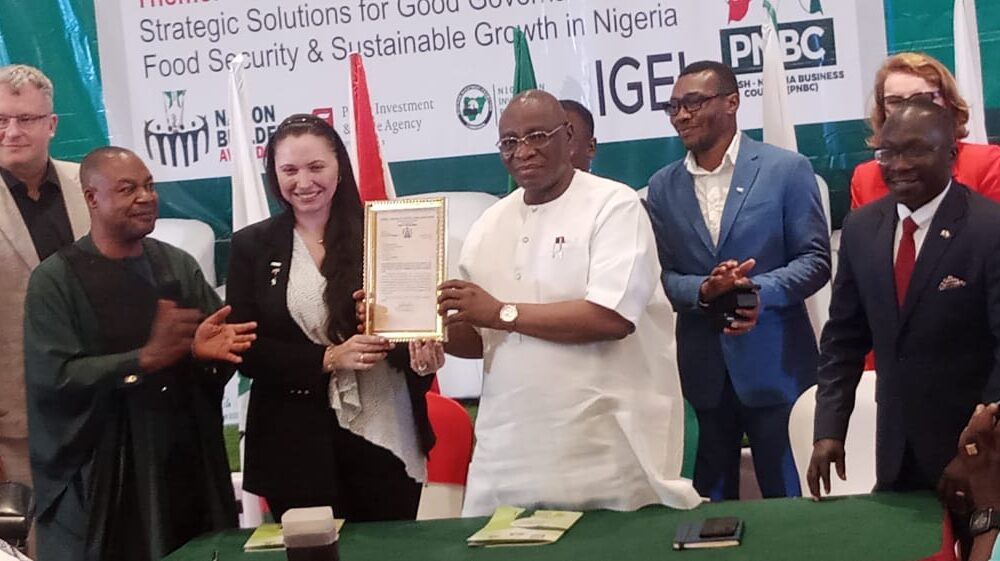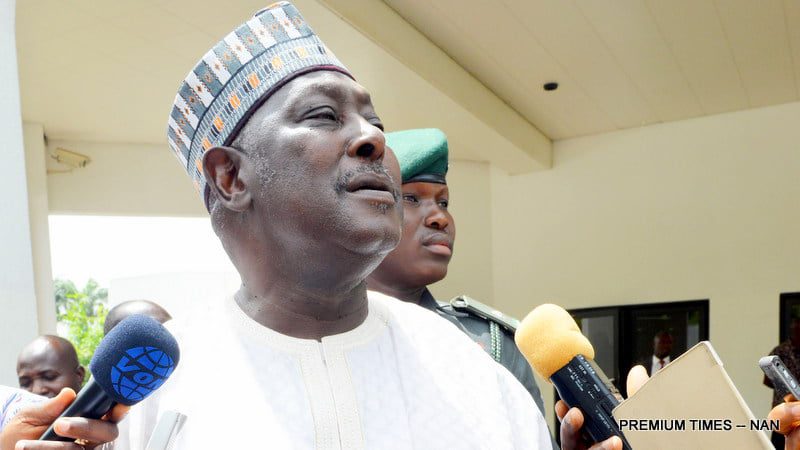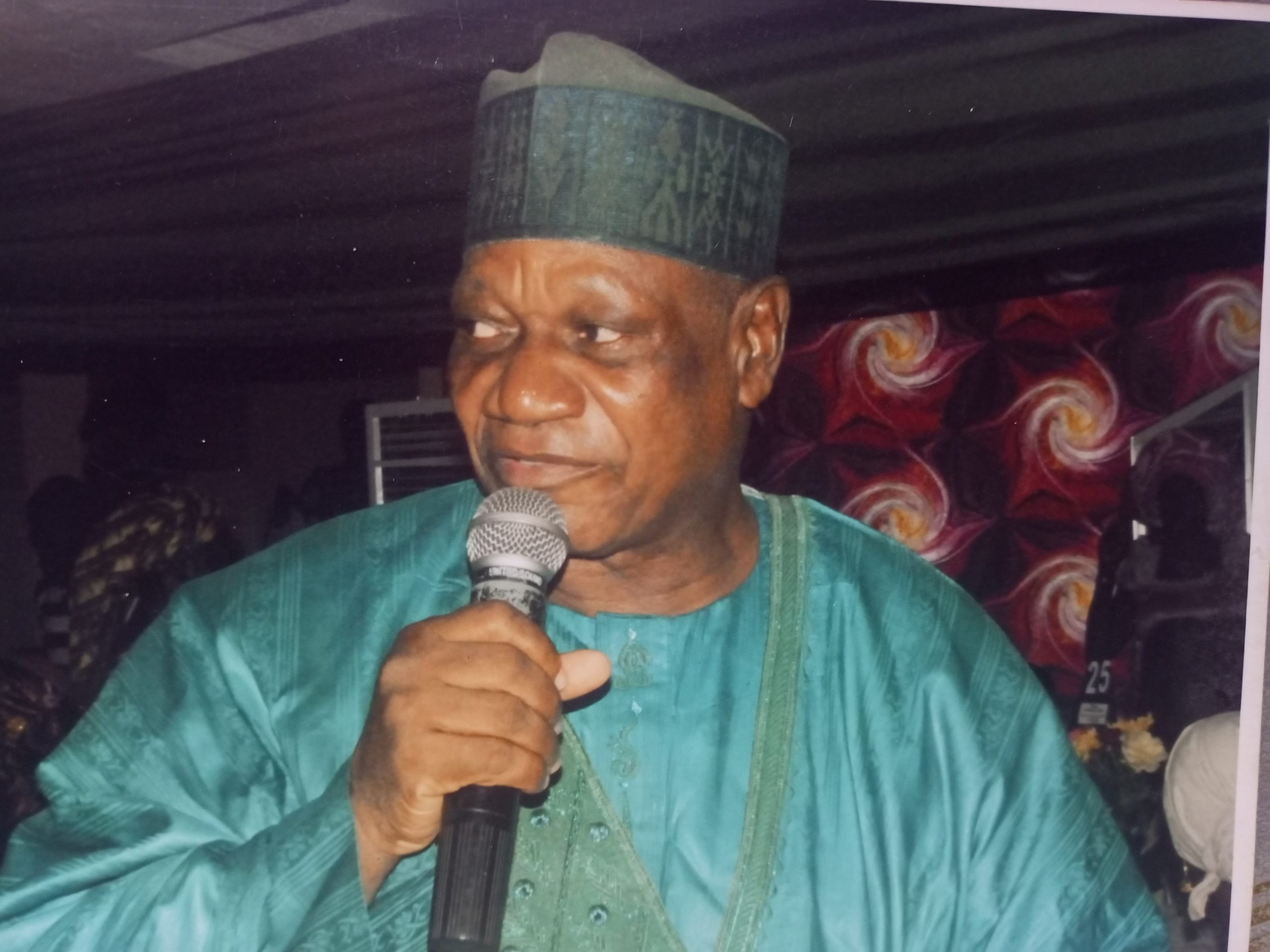***Calls for reassessment of Nigeria’s Federalism at FFDGN National Conference
Former Governor of Akwa Ibom State, His Excellency Obong Victor B. Attah, has declared that the 1999 Constitution is a major hindrance to good governance in Nigeria.
Attah made this statement during his keynote address at the 2024 National Conference of the Forum of Former Deputy Governors of Nigeria (FFDGN), as chairman of the ocasion held at the Abuja Continental Hotel on Tuesday

Attah criticized the 1999 Constitution, stating that it carried over structural flaws from the military regime that undermined Nigeria’s federalism, which he believes has stifled governance, accountability, and development. He urged the forum to advocate for reforms that will restore true federalism and drive the country toward progress.
“The defilement of federalism has been the biggest drawback to good governance, inclusiveness, and development,” Attah stated, calling for a critical reassessment of the nation’s governance structure.
“The theme of your conference and the five sub-themes show that you have a clear awareness of our current situation in this country.
“Let me add to that my conviction that, as a forum, there is a lot that you can do to add value in all these areas. I say this because, I had found it necessary, in accepting to chair this occasion, to carefully read through your Fact Book.

“Your Fact Book tells me that you were “founded to provide opportunities for past Deputy Governors to deploy their expertise, skills and knowledge individually and collectively for the growth and sustainable development of Nigeria” it goes on to describe you as “a good governance interventionist Organization”.
He asked rhetorically what the forum consider as good governance? Whether Nigeria has been practicing good governance? And how as a forum, they have intervened?
“As a critical platform of quality managers of human and material resources, your forum is expected to contribute to nation building through advocacy for good policy initiatives that will promote a culture of accountability, as well as a consciousness of Nigeria’s Core National Values
“What are these Core National Values and have we always been Accountable?
“From the 2023 Record of Proceedings of your National Conference & Summit, I read where it was said that the 1999 Constitution of the Federal Republic of Nigeria (as amended) is a good document that can lead our country to the expected eldorado.
“Those of you who have listened to some of my television interviews or read some of my published articles will know that I totally and completely disagree with the statement.
“Rather, like you, I identify fully with the findings of your October, 2022 Annual General Meeting which was held in Uyo. The theme was National Building In Challenging Times and the first major problem that you identified was the installation, by the military regime, of a command structure that defiled Nigeria’s federalism installed from 1954.
“That defilement was carried over into the 1999 constitution and that, by destroying the foundation of federalism on which the country was built, has in my honest opinion remained our biggest drawback to good governance, accountability, inclusiveness, productivity and development.
“The challenging times are still here with us and you have identified in this year’s theme, the main challenges that are still facing us today.
“This is why I have tried in this opening address to stimulate, and may even be, provoke you to think deeply at this conference, discuss frankly and, hopefully at the end, as an interventionist organization, provide this country with the solutions that we so desperately need to bind our country into a thriving nation that is moving forward.
Former Governor of Ogun State, Chief Segun Osoba, who aligned with Atta on his submissions called on former deputy governors in Nigeria to aim for the highest office in the land, citing the historical precedent set by former President Goodluck Jonathan. Osoba highlighted that deputy governors have previously risen to the presidency and could do so again.
“There is still hope. You produced a president before—why can’t you do it again?” Osoba said, referencing Jonathan’s rise from deputy governor of Bayelsa State to president of Nigeria. He expressed his support for the Forum, commending their commitment to good governance and non-partisan collaboration for the betterment of the country.
Osoba stressed the importance of food security, emphasizing that a self-sufficient nation is a powerful one. He praised the Forum for its dedication to national development, crossing party lines to focus on the future of Nigeria.
In closing, Osoba encouraged the Forum to continue its work, expressing hope that one or more of its members might someday become president. “I may not be around, but my prayer will be heard by the grace of God,” he said.
Hon. Kenneth Ibe-Kalu, Director-General of the Forum of Former Deputy Governors of Nigeria (FFDGN), emphasized the Forum’s commitment to nation-building and strategic policy interventions at the 3rd National Conference in Abuja. He highlighted the Forum’s growth since its founding in 2011 and its current role as a key platform for driving political and economic dialogue in Nigeria.
The FFDGN’s mission is to fill gaps in policy and governance, providing a solid foundation for the next generation of leaders. This vision is crucial as Nigeria faces governance and economic challenges. Ibe-Kalu acknowledged the efforts of the Forum’s founding members in establishing this vision.
Chairman of the Forum of Former Deputy Governors of Nigeria (FFDGN), Dr. Chris A. Akomas, called for urgent and strategic measures to tackle Nigeria’s governance and food security challenges.
Akomas stressed the need for Nigeria to leverage its resources and expertise to overcome critical obstacles to national development.
Themed “Strategic Solutions for Good Governance, Food Security, and Sustainable Growth in Nigeria,” the conference gathered former deputy governors and key national stakeholders to address the nation’s governance inefficiencies and the pressing issue of food insecurity. Akomas underscored that nation-building requires a collective commitment to innovation and practical solutions, highlighting the unique position of the FFDGN in driving reforms.
He also advocated for international cooperation, citing the Forum’s partnership with the Polish Nigeria Business Council as a key initiative to boost trade, investment, and cultural exchange.
Akomas urged participants to move from discussions to concrete actions, and announced the Forum’s plan to present a compendium of governance experiences to guide future leaders.
The conference is set to produce actionable recommendations aimed at enhancing governance and ensuring food security for Nigeria’s sustainable growth.




